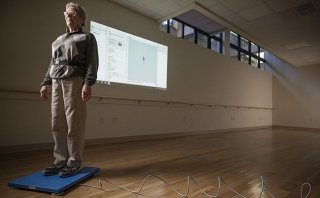Study Reveals Significant Sleep Disruption Among Hospitalized Older Adults
Sleep significantly worse on the first night due to monitoring vital signs and medication administration.
-

Senior Scientist
A new study published in JAMA Network Open highlights the prevalence of sleep disturbances among older adults during hospital stays, particularly those admitted through emergency departments. The research emphasizes the need for targeted interventions to enhance sleep quality in this vulnerable population.
The study, “Sleep Interruptions Among Older Adults Admitted to the Hospital,” included 19,017 older patient admissions, accounting for 73,151 patient nights at six hospitals from June 1 through December 31, 2024. Researchers found that patients still receiving care in the emergency department experienced 4.9 sleep interruptions compared to 4.6 sleep interruptions for patients admitted to a hospital bed on their first night. Patients in emergency departments had less sleep — 3.7 hours compared to 3.8 hours for other patients on their first night in the hospital. Patients experienced fewer sleep interruptions (3.7) and increased sleep time (4.3 hours) on the second and subsequent nights.
“Our study sheds light on a persistent but underrecognized challenge facing hospitalized seniors: poor sleep due to frequent nighttime disruptions, particularly in emergency departments. These findings underscore the need to consider ways to promote sleep in the ED and minimize sleep disturbances on the first night,” said Sarah Berry, MD, MPH, senior scientist at the Hinda and Arthur Marcus Institute for Aging Research. “Implementing interventions to improve sleep quality, particularly on the first night, could enhance recovery and health outcomes for hospitalized older adults.”
The study was supported by a pilot award from the Geriatric Emergency Care Applied Research Network 2.0 (NIA grant R33AG069822) and a grant from the NIA (K24AG070106).
The researchers included Adrian D. Haimovich, MD, PhD, assistant professor of emergency medicine, Beth Israel Deaconess Medical Center; Suzanne M. Bertisch, MD, MPH, assistant professor in medicine, Harvard Medical School and physician/clinical investigator, Sleep and Circadian Disorders, Department of Medicine, Brigham and Women’s Hospital; Venkat Jegadeesan, BS; vice president, Technology & Innovation, Beth Israel Lahey Health; Jennifer P. Stevens, MD, MS, director, Center for Healthcare Delivery Science, Beth Israel Deaconess Medical Center; Mara A. Schonberg, MD, MPH, professor of medicine, Beth Israel Deaconess Medical Center; and Dr. Berry.
About Hebrew SeniorLife
Hebrew SeniorLife, an affiliate of Harvard Medical School, is a national senior services leader uniquely dedicated to rethinking, researching, and redefining the possibilities of aging. Hebrew SeniorLife cares for more than 4,500 seniors a day across campuses throughout Greater Boston. Locations include: Hebrew Rehabilitation Center-Boston and Hebrew Rehabilitation Center-NewBridge in Dedham; NewBridge on the Charles, Dedham; Orchard Cove, Canton; Simon C. Fireman Community, Randolph; Center Communities of Brookline, Brookline; Jack Satter House, Revere; and Leyland Community, Dorchester. Founded in 1903, Hebrew SeniorLife also conducts influential research into aging at the Hinda and Arthur Marcus Institute for Aging Research, which has a portfolio of more than $98 million, making it one of the largest gerontological research facilities in the U.S. in a clinical setting. It also trains more than 500 geriatric care providers each year. For more information about Hebrew SeniorLife, follow us on our blog, Facebook, Instagram, Threads, and LinkedIn.



